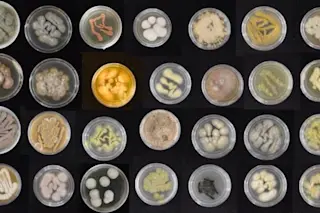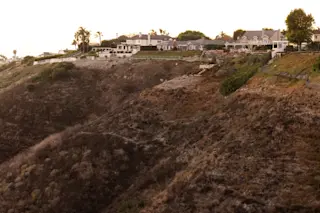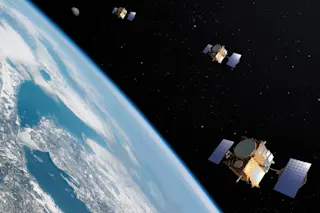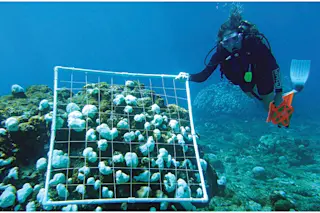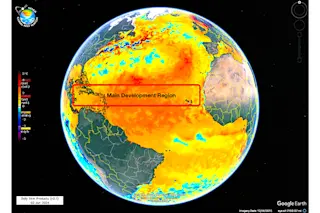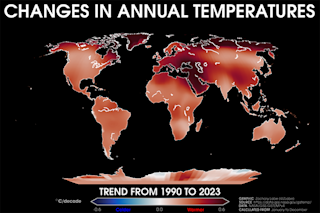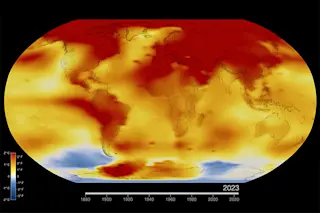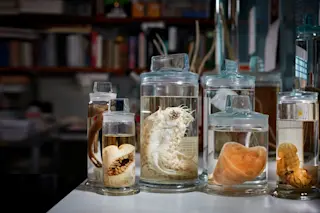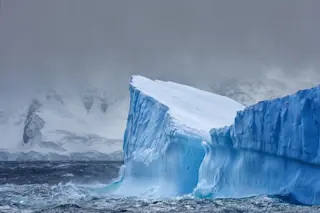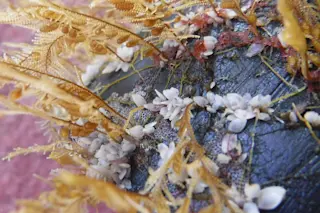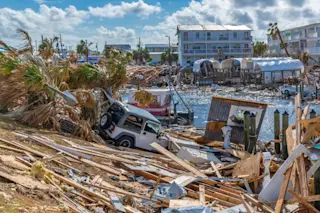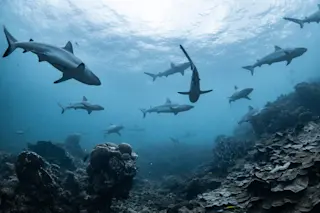Mustard hill coral (Porites asteroides) When the Deepwater Horizon oil rig blew in 2010, it spewed some 200 million gallons of oil into the Gulf of Mexico. In order to break up the slick, another 1.84 million gallons of dispersant was added to the mix. This one-two punch of toxic chemicals devastated coastal ecosystems [pdf], but how would such a chemical bombardment affect underwater ecosystems like coral reefs? According to a new study, the picture is no prettier. Researchers at the Mote Marine Laboratory in Florida tested the effects of Deepwater Horizon-type oil and the dispersant used to clean it up, Corexit® 9500int, on coral larvae in the lab to replicate what may have happened following the spill. Larvae colonize reefs by sampling a surface, sticking to it and then changing into a polyp to get growing. They do this based on chemical cues in the water. Adding oil and ...
Oil Spill Cleanup Could Kill Coral
The Deepwater Horizon oil spill devastated coastal ecosystems, hindering coral larvae settlement and survival rates. Learn more about the impact.
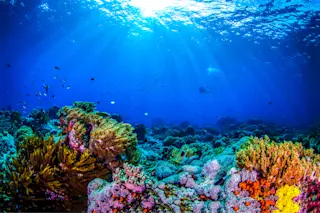
Newsletter
Sign up for our email newsletter for the latest science news
More on Discover
Stay Curious
SubscribeTo The Magazine
Save up to 40% off the cover price when you subscribe to Discover magazine.
Subscribe

